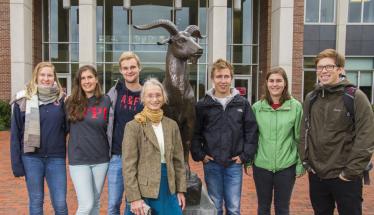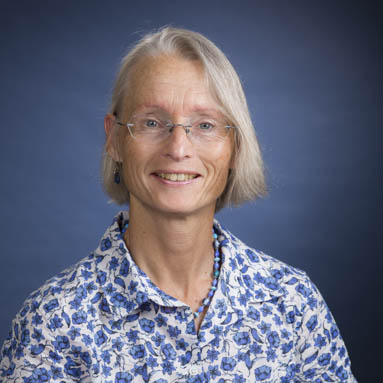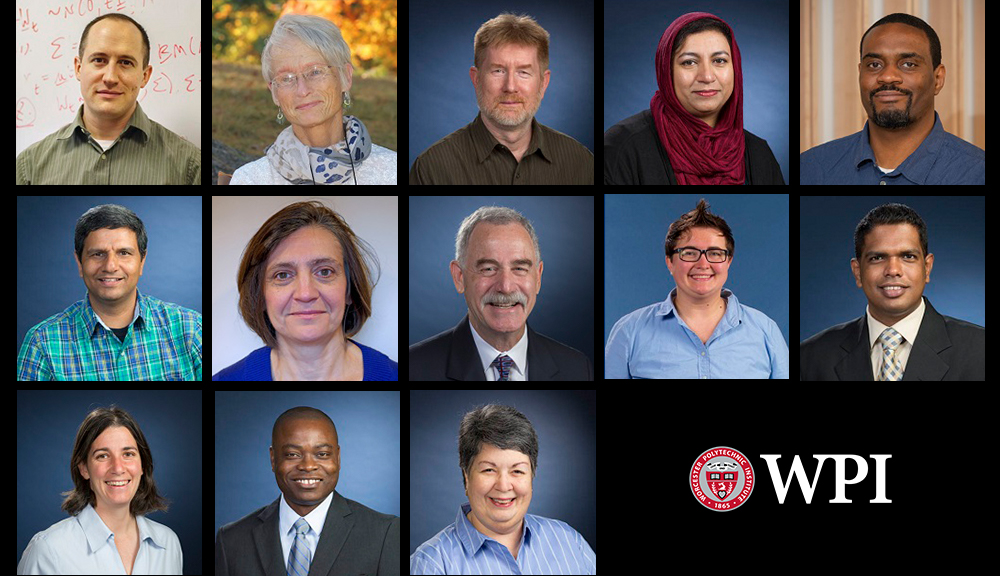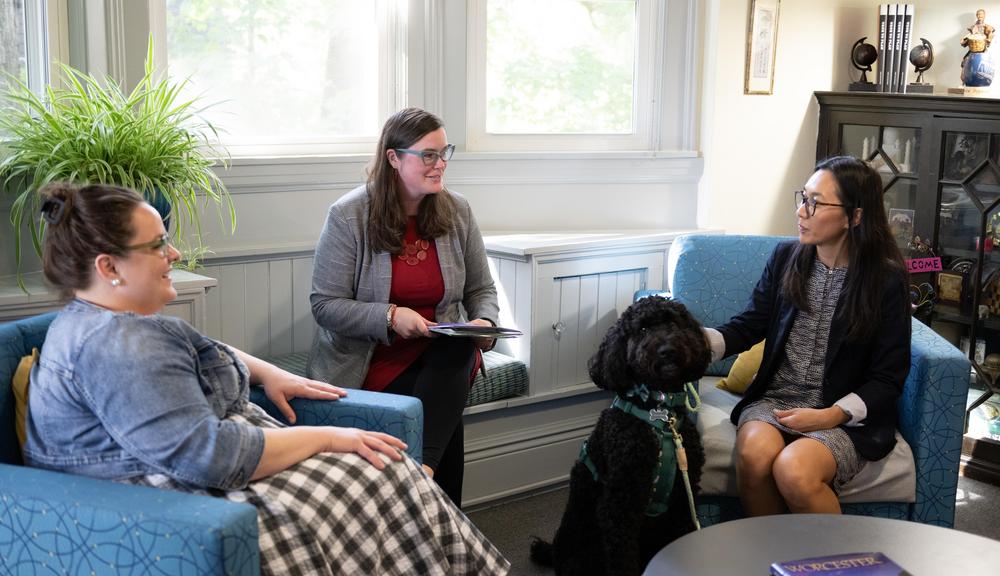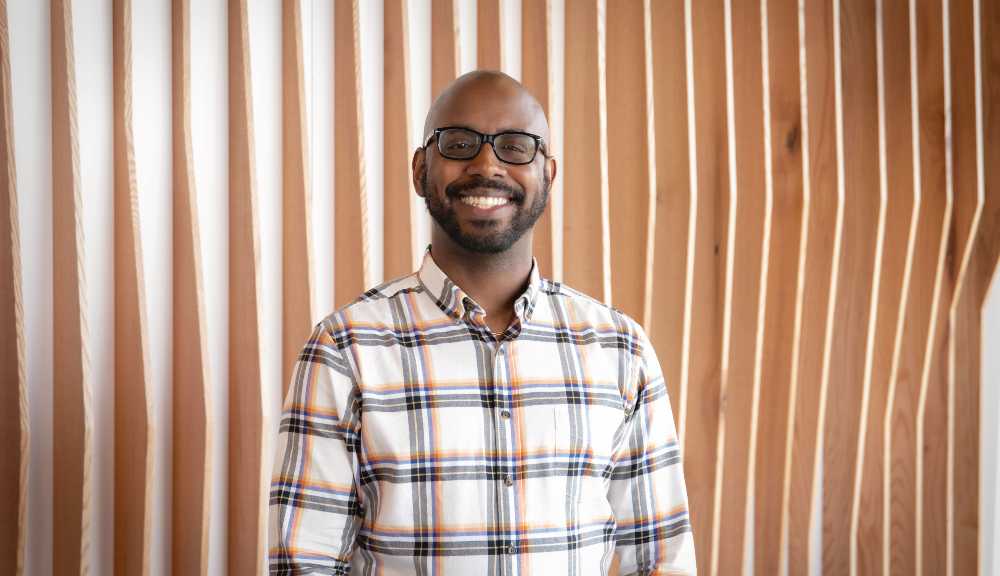Associate teaching professor of German Ulrike Brisson has one fear when it comes to WPI students participating in the German exchange program with the University of Applied Sciences. “Konstanz is such a beautiful place, I’m afraid they won’t come back,” she laughs.
Born in Germany, Brisson came to the U.S. in her mid-30s. She now oversees WPI’s exchange partnership with the German university, an arrangement that has been in place for a decade.

Brisson (center) meets with students.
“In 2007 they reached out to us and asked if we were interested [in groups of their students spending a semester here, with WPI students spending a semester there]," she says. “We were absolutely happy.” The first WPI group went to Konstanz in the spring of 2009.
The draw to German culture comes naturally to WPI, with its focus on technology, research, and applied sciences, says Brisson. "In general, students want to learn German as they are interested in the country’s auto industry; Germany is also a global leader in environmental technology," she says. "The students visiting WPI from Germany are generally looking to improve their English, build their CVs, and experience campus life."
Robin Riesner hopes that the U.S. experience will help him stand out among other applicants in his job search.
“For me, the main reason to participate in the exchange program was the opportunity to specialize in space technologies at WPI [experiencing] classes such as Spacecraft Dynamics & Control … that’s the field I want to work in,” says Riesner, an electrical engineering and management major in his senior year at the University of Applied Sciences.
The experience of which Riesner is now a part began in 2009, when Konstanz students came to WPI for the second part of the year. Generally, groups of eight to 12 are going back and forth, says Brisson, but this year 14 WPI students will make the trip over.
The process begins with the Global Fair in A-Term, where students sign up, and make their way through information sessions, applications, and interviews until it’s time to pack their bags and go.
The WPI students who apply are often from countries outside the U.S., Brisson points out; some have European passports—only a minority of students having never traveled outside the country before. They use some of their time to travel and explore the German culture, usually in a group. They are housed on campus with German students or other international students.
For German students coming to WPI, the German Club and International House set up gatherings and mentors are assigned once the students arrive. German students coming to the U.S. tend to be a bit older, Brisson explains, as they can spend more time. “Some do internships or apprenticeships or trades and then decide to go back to school.” German universities do not have tuition fees.
Angelika Gessler wants to improve her English while in the U.S., and see how lectures and student life differ here. “After several weeks at WPI," she says, "I can say that … the campus offers a lot of opportunities to the American students so that they do not need clubs or friends outside the university, like in Germany. I am really enjoying my time here at WPI.”
As the program moves forward, Brisson looks to guide WPI students toward reflecting more on their German stay. In the first seven weeks, she asks them to email her in German about what they are experiencing, and she pushes them toward analyzing their experiences overall. “We want them to communicate on what they are learning.”
- By Susan Shalhoub
